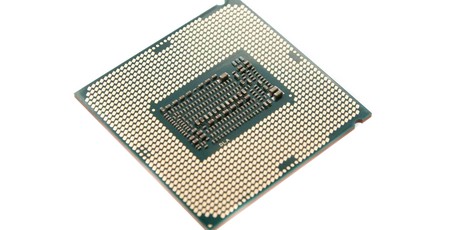
I've been building a few budget systems recently, and I've discovered a rather worrying compatibility issue with older Intel 300-series chipset motherboards and its latest 9th Gen CPUs. Specifically, these CPUs are the likes of the Core i5-9400, part of the second wave of 9th Gen Core processors, and have steppings such as P0, U0, and most recently R0. A stepping is basically a tweak in the production process of a CPU that isn't drastic enough to warrant a product name change but that typically requires a microcode update to ensure full compatibility and stability. The new R0 stepping was in the news recently as motherboard manufacturers scrambled to issue statements about compatibility. You can see which BIOS version is compatible with particular CPUs and steppings on compatibility pages, such as the one below, which shows you'll need a BIOS update for full compatibility with R0 CPUs.
Precise details about stepping changes are not usually revealed by Intel, but we have a source claiming that as far as the six-core Core i5-9400 goes, at least, the original U0 stepping refers to a CPU with a native six-core die; the second-generation P0 stepping uses a reconfigured eight-core die; and the latest R0 stepping continues to use the eight-core die but with an added hardware-level security patch implemented. Retailers rarely if ever sell CPUs with different steppings under different listings, so it'll be anyone's guess as to which you receive when buying one.
Regardless of stepping, all 9th Gen Coffee Lake Refresh CPUs were released some time after a number of 300-series chipsets, including H310, B360, and H370, but they are still socket-compatible. Now, we were assured by multiple motherboard manufacturers that if you dropped one of these new 9th Gen CPUs into a newly-purchased 300-series motherboard, you'd be able to at least get into the BIOS to update it to the fully compatible version, and you'd be on your way. I've spoken to Asus, Gigabyte, and MSI on this issue, and all claimed that if you go out right now and buy, for example, an H310 motherboard - a likely partner for the Core i5-9400 since you won't be overclocking and these boards are super cheap - that this would indeed be the case. Gigabyte even went as far to say that if end-users had issues updating the BIOS, it would collect the board and update it for them (in the UK, at least). The trouble is, as I've discovered since, that it all depends on just how old the BIOS is on the motherboard in question.
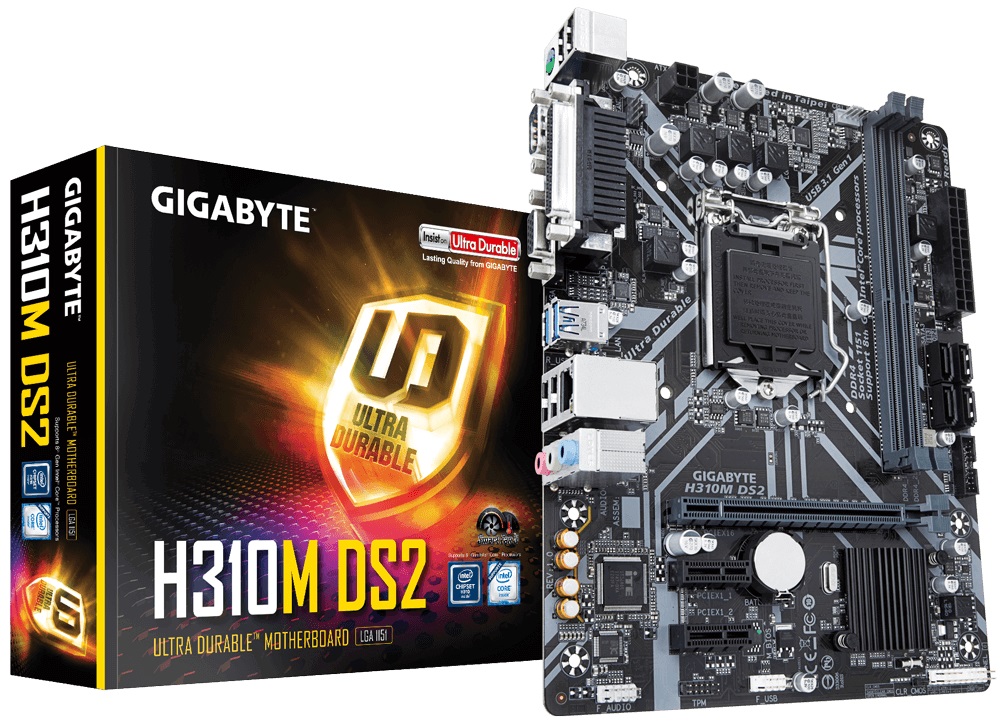
My concerns started when I bought an MSI H310 board, the H310-F Pro, for a little crypto-mining experiment. I dropped an Intel Core i5-9400 into it and failed to get anything on the screen. I swapped graphics cards, memory, and even monitors, but then I dropped in a Core i5-8400, and hey presto, I got it to POST. However, this was a brand new retail motherboard - exactly the type MSI had claimed would work with Intel's new CPUs (at least enough to POST). Except it didn't, and if I'd bought this combination and wasn't a hardware reviewer with convenient access to older Intel CPUs, I'd be completely stuck. (Well, you could always turn the board into a clock? - ed.)
Asus was next, and again it told me that there should be no compatibility issues with a new retail board. So I purchased my own sample of its TUF H310-Plus Gaming, and guess what? It didn't POST with the Core i5-9400, but the Core i5-8400 worked fine.
Now, I should add that I also looked into the CPU compatibility listings of both these boards, and as I suspected the BIOS versions provided with these retail samples were - despite being brand new boards - too old, pre-dating the versions MSI and Asus said would work with Intel's new 9th Gen CPUs. My Core i5-9400 sample was actually manufactured with the earlier P0 stepping, yet it still failed to POST in both Asus and MSI boards.
Next was Gigabyte, and this one was particularly interesting, as it had gone one step further to say that it would deal with the fallout should its boards fail in this way. I got hold of an H310M DS2 2.0 and B360M DS3H (two other cracking-value Coffee Lake-compatible boards), dropped in the Core i5-9400 and... POST! Now, the first of those two boards came from Gigabyte direct, but it still had an ancient 2018 BIOS on it. The B360 board, though, was purchased retail. It could just be that boards were slightly newer stock; there might still be older versions out there sitting in warehouses that lack compatibility, just like with the MSI and Asus examples. However, it appears that Gigabyte states the same BIOS should work regardless of what stepping you have. Still, without buying up every H310, B360, Z370, and H370 board out there, it's tricky to see if Gigabyte simply has less old stock in UK warehouses.
What this does mean, though, is that for Asus and MSI at least, there appears to be a compatibility lottery going on if you pair one of these first-generation 300-series chipset boards with one of the new 9th Gen CPUs, such as the Core i5-9400. Despite both companies claiming these boards will be compatible, there is clearly old stock out there with BIOS versions that are completely incompatible with these new CPUs. So, my advice to you is to buy Gigabyte, since its board worked, at least for me, plus in the UK it will apparently update your board to a compatible BIOS for free if it doesn't. If you go with someone else, be prepared to click that RMA button.
We reached out to Asus, MSI, and Intel last week for comment on the situation. MSI responded but was not able to offer a BIOS update service akin to Gigabyte's and has instead suggested that end-users seek help from retailers in cases where an incompatible board is received, while also claiming that it implements the most recent BIOS available at its own factories and stock centres.
Intel has offered additional information and stated that both R0 and P0 steppings will be available in retail CPUs, with R0 being in the market for the remainder of the life of the product. Which stepping you'll receive right now, though, will be down to luck and it's worth nothing again that R0 stepping CPUs often need an even more recent BIOS version than other steppings, perhaps compounding the issue we've detailed above. However, it did provide a handy link to all major motherboard manufacturers 9th gen CPU compatibility lists so you can check if the board and BIOS version you have will work, or try your luck at checking with your retailer to see if they can nail down the BIOS version before you buy.
Asus is still investigating and has thus far not responded to the request for comments.

MSI MPG Velox 100R Chassis Review
October 14 2021 | 15:04

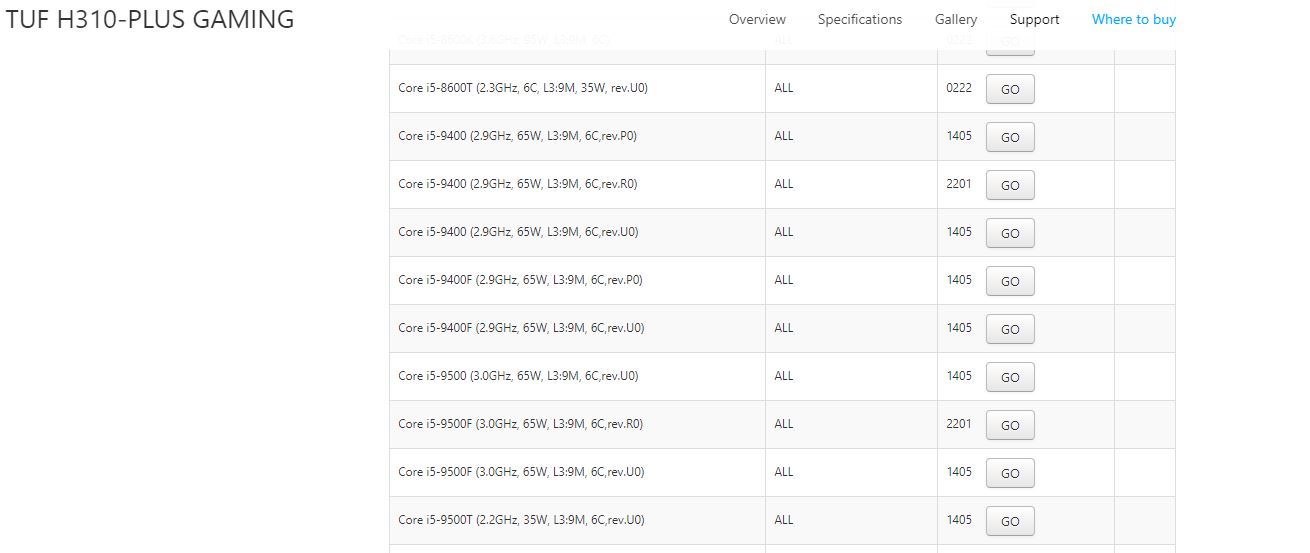
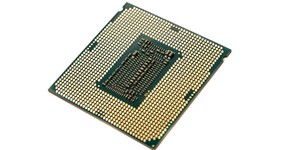
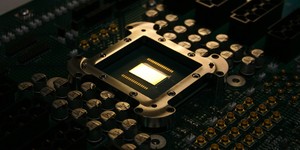





Want to comment? Please log in.